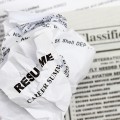 Being handsome might give men an advantage in romance, but it can hurt them in the job arena.
Being handsome might give men an advantage in romance, but it can hurt them in the job arena.
That’s the conclusion researchers from the University of Maryland and University College London drew after completing four different experiments designed to gauge potential employer reactions to applicants who were considered to possess a high degree of attractiveness.
The results of the study indicated that men who happen to be considered slightly unattractive have an edge when it comes to being hired compared to their more attractive counterparts.
The findings especially related to professions where competitive environments are the norm, such as sales positions, where rewards come based on individual successes.
The four experiment variations involved anywhere from 92 to 273 participants. All of the studies conducted had people choose potential job hires using a collection of photos.
The photos chosen for the studies came from a selection that is commonly used in research for attractiveness.
When all was said and done, the findings were telling. Researchers learned that candidates applying for jobs in team environments had a better chance of landing a position if they did happen to be attractive.
In competitive environments, however, the unattractive men won out hands down. Researchers say in competitive environments attractive men are likely seen as being more competent, which could lead employers to see them as threats.
The Same Doesn’t Apply to Women
While the University of Maryland’s study focused on men, Italian researchers have posed a similar question as it relates to women.
These researchers sent out 10,000 resumes and changed only names, addresses and photos of applicants to gauge employer bias.
The results found that women enjoyed an average callback rate of about 30% across all resumes.
Attractive women, however, experienced a 54% callback rate. Women deemed unattractive, however, only enjoyed a callback rate of about 7%.
What Does it Matter?
The experiments related to men’s attractiveness and job prospects was conducted to gauge the existence of bias.
The results are now hoped by researchers to help raise awareness about the bias that the studies indicate does exist. The research shows how and when stereotyping occurs and can help employers take the right steps to correct the behavior and stop it.
“People make these important job decisions and inferences about how competent people are just based on their physical attractiveness without having the slightest clue that they’re doing that,” Marko Pitesa, one of the lead researchers, told Fusion.
To prevent hiring bias, which can lead to discrimination and the potential of passing over highly qualified candidates, Pitesa recommends companies make hiring managers justify their hiring decisions verbally or in writing.





